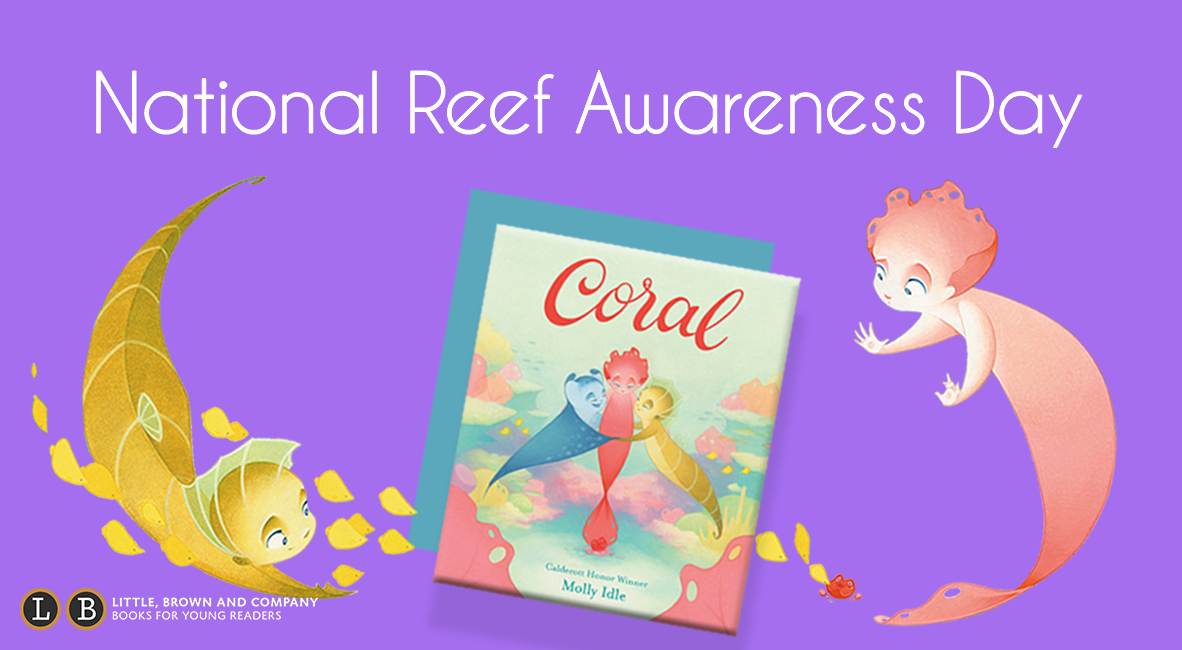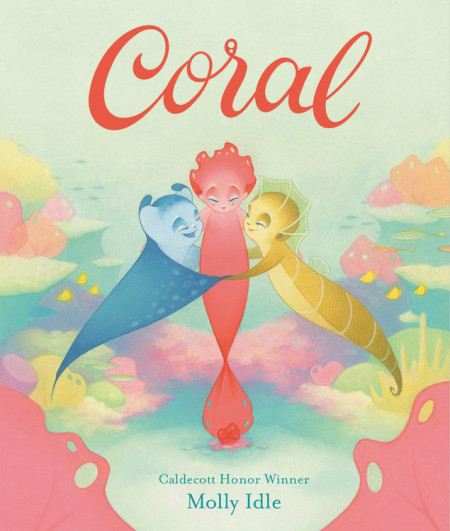National Reef Awareness Day

We are celebrating the release of Coral by Molly Idle, the companion to acclaimed story Pearl. Coral tells us the tale of three new mermaid friends.
Coral, Filly, and Manta live on a sunlit reef teeming with sea life. When Coral comes upon an empty hollow at the heart of the reef and tries to keep it as her very own, Filly and Manta are banished. All that grows in the wake of her anger is regret, and Coral must find a way to turn the tide…but she can’t do it alone.
While mermaids aren’t real – at least as far as we know—coral reefs are, and we can help keep them from dying out. Coral reefs are important because they protect the coastline from the damaging effects of waves and tropical storms. They provide shelter for other marine organisms while being a source of essential nutrients for marine food chains. This isn’t even half of what they do. These colorful, living wonders are amazing!
Here are some things you can do to help protect coral reefs and ensure their survival:
-
Conserve water/Reduce storm water runoff
The less water you use, it reduces the amount of runoff that finds its way back to the ocean. Turn off the water when you brush your teeth. Can you shorten your shower by a minute or two? Every little bit helps!
-
Spread the word. Talk about it.
Talk to other people about it and make sure they understand what’s going on. Explain to friends and loved ones what they can do to help. Many people don’t realize how important coral reefs are to the entire ecosystem!
-
Recycle and dispose of trash properly
If you recycle and dispose of trash properly, making sure it goes in the correct bins, that one step itself reduces the risk of trash finding its way into the oceans and waterways.
-
Minimize the use of fertilizers
Coral reefs, like people, need the sun to survive. But algae blocks the sunlight corals need to live. Using too much fertilizer increases algae. Not only that but some of the nutrients in fertilizers pollute the water and cause harm to the corals. Ick!
-
Save energy by using energy efficient lightbulbs
Did you know that using energy efficient lightbulbs reduces the amount of greenhouse gas emissions? Climate change is one the biggest threats to the coral reefs. Swapping your lightbulbs (which last longer too!) can help reduce emissions, which helps reduce the major climate change effects.
-
Volunteer at local beaches
You can help cleanup at your local beaches. Research local organizations and groups that might hold cleanup days, or beach sweeps. And make sure you don’t leave anything behind when you visit the beach—no one wants to sit by the sea…in garbage.
-
Remove trash, even if it’s not yours
Not just at the beach! Cleaning up is important, and it really helps to not only remove your trash, but any that you see. Do so safely of course (WASH YOUR HANDS) but each piece of trash helps clean up the world.
-
Check the ingredients in your sunscreen to make sure they aren’t harmful. This helps you AND the reefs! Win-win!
-
Don’t touch them if you go diving
So fun fact: coral reefs are actually alive, so please keep your hands to yourself. Like any other creature, no matter how beautiful it looks, don’t touch! And coral is DEFINITELY not a souvenir—leave it be.
-
Anchor in the sand when boating
When you drop an anchor in areas with reefs and sea grass the anchor and/or chain can get caught dragging and destroy these precious, living structures. Please only secure your boat in sandy areas.
Learn more about Coral by Molly Idle here!
